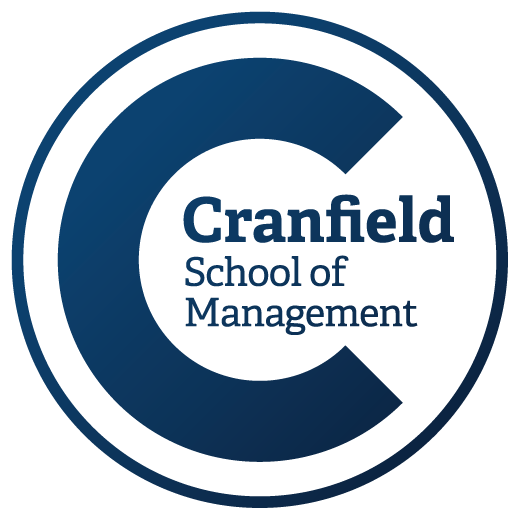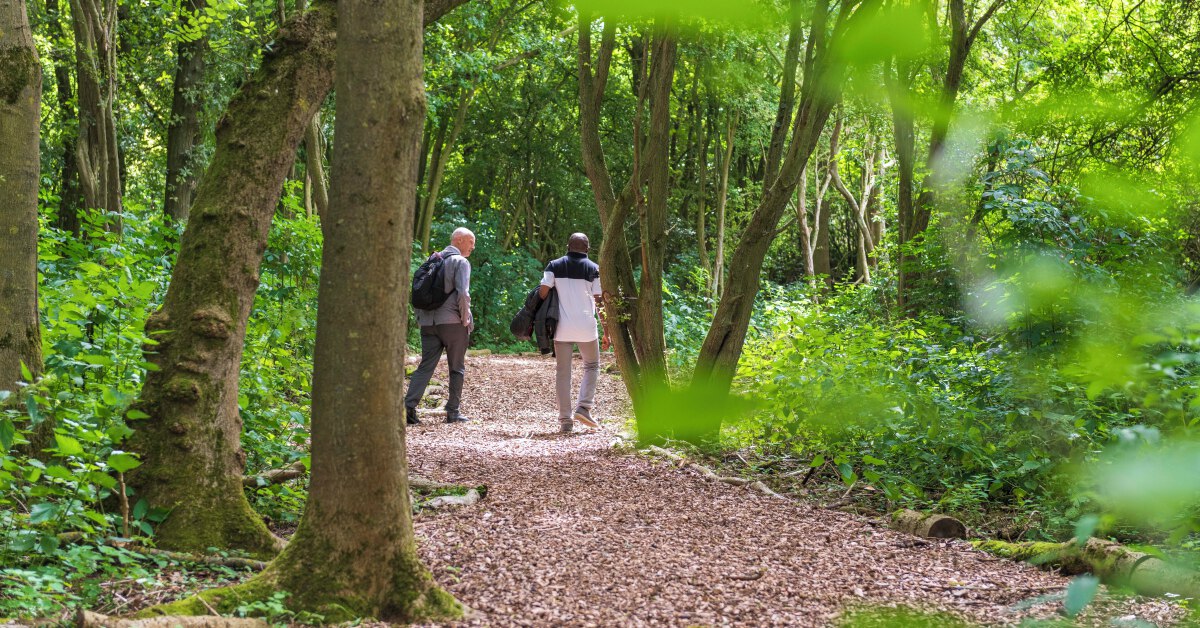Sustainability: Why it’s ok not to have all the answers
06/06/2022

“Profit is a good thing,” states Cranfield Emeritus Professor David Grayson emphatically. “I’m a big believer in capitalism and market economies. I just want businesses to be producing true profits based on the true costs of doing what they do, including the costs to the planet.”
“The writer Peter Drucker once said: ‘Every global problem and social issue is a business opportunity in disguise’. I love that quote, and I’ve probably quoted it at least once to every student cohort since Drucker said it in 2009, because that’s the way we want Cranfield students to think about sustainability. It’s not just about compliance and reducing risks – those things are an important part of the mix, but the really exciting part is in encouraging people to look for those business opportunities in disguise.”
We’re talking to David about his latest book, The Sustainable Business Handbook: A Guide to Becoming More Innovative, Resilient and Successful, which aims to provide businesses with a how-to guide to achieving ‘real’ profits through embedding sustainability throughout their operations.
Intensely practical
“This is a very different type of book to anything I’ve written before,” he explains. “It is an intensely practical, step-by-step guide. My collaborators and I speak to companies around the world who are leading on sustainability, and we’ve all been saying for some time that we need to collectively reach the mass of businesses who are still struggling with all this; those who haven’t yet got the understanding or the vision but who – if we are going to make enough progress fast enough on things like the climate emergency, bio-diversity loss, or hyperglobal inequalities, or diversity and equity and inclusion – we need to bring to the party.
“In writing it, we talked a lot about how we give businesses the best chance of being able to continue into the indefinite future, which I think is the best any business could legitimately ask for. We set out very consciously to try to demystify sustainability and not assume lots of prior knowledge.”
A ‘how-to’ guide
Each chapter of the book covers a different aspect of successfully embedding sustainability into a business, and includes case studies from businesses that are relatively new on their sustainability journey as well as those leading the charge. Among the themes explored are tips on building a culture that enables success, how to identify a business’s material impacts, and how to put together a comprehensive sustainability strategy.
“Historically, culture is not one of the topics sustainability professionals gave a lot of attention to,” says David. “But, for me, having a culture that encourages progress in terms of sustainability is at the heart of making real progress. If the culture of the organisation is genuinely empowering so people not only feel they have permission to take the initiative but have the training, frameworks and understanding of the broad strategy the organisation is pursuing on sustainability, they are much more likely to volunteer new ideas and insights for improving performance.”
“It is a cliché that the longest journey starts with the first step,” he added. “But I think it applies here. Sustainability is such a big subject area that, if you try to do too much too quickly, or too many different things, you’ll either become dispirited or absolutely paralysed with the amount there is to do. It’s important to get a sense of priorities, and this starts with an open assessment of where the business is having the most material impact. Once you’ve got that, you can develop the strategy around a clear set of measurable targets, working out who is going to do what, what resources are going to be needed, and how to ensure senior leadership buy-in. For those starting out, it’s about determining the steps to take to give everyone in the business confidence that this isn’t as difficult as they might think, and to show them how some of the business’s existing tools and techniques can be adapted or given an additional use or purpose to help towards its sustainability strategy.
“There’s nothing wrong with setting ambitious targets, which are real, multi-year, stretch targets the whole organisation can get behind. But it’s important that businesses follow those all the way through so that the strategy can be actionable and employees can relate it to their own work.
Collaboration is key
“Sustainability is one of those areas where it is ok to be trying – and to ask for help,” he added. “It’s perfectly acceptable for a business leader to say: ‘We’re doing our very best, but we don’t have all the answers and there are some places where this is real frontier stuff, and we’re struggling’. I think that’s far more credible and authentic than the hero CEO model many businesses put forward in the past. It’s also why we have another chapter in the book on partnering with others, as often it is these collaborations – when two or more organisations come together to solve a problem for mutual benefit – that are needed to come up with the solutions that collectively enable business to take bigger steps forward on sustainability.”
David’s handbook will be essential reading for participants on Cranfield’s new Sustainability MSc which launched earlier this year, and he is looking forward to teaching on the programme in due course.
“I’ve met the first cohort already and it is full of really bright, intelligent and inquisitive people who are so hungry to learn and to encourage their organisations to do better on sustainability,” he enthuses.
“I’m excited to work with them and to see the impact they take back into their individual businesses as a result of coming on the programme.”
For more information on the Cranfield Sustainability MSc, read this blog from course directors Dr Rosina Watson and Dr Kenisha Garnett.
Categories & Tags:
Leave a comment on this post:
You might also like…
How do I write a secondary reference … in the NLM style?
Secondary referencing is used when you’re reading a work which includes a quotation from another author, and you – the researcher – can’t obtain the original source. We always advise, where possible, to try to ...
Reaching new heights: How a Global Excellence Scholarship fuelled my aerospace dreams
Leaving my home in India to pursue an MSc in Aerospace Dynamics at Cranfield University was a leap of faith. Hi, I’m Oliza Kachroo and as an international student, the transition ...
How do I reference…when delivering a presentation?
Just as you cite and reference sources in written work, you should also acknowledge the sources you use or quote in oral presentations. Citing your sources in presentations provides your audience with information about the ...
How do I reference a blog post… in the NLM style?
Whilst blog posts do not fall into the scholarly material category, they can be useful for providing personal insights into a particular area. For example, there may be a high-profile member of an industry who ...
From nature walks to neural networks: My journey in Applied AI at Cranfield
Hi, I’m Ebru K and choosing a postgraduate degree is about more than just picking a subject; it’s about choosing where your future begins. As an international student from Turkey, I ...
Leading With Heart: My Journey as Cranfield Student Association President by Summer Yan
When I first arrived at Cranfield, I had no idea that one year later I would be standing at the heart of our student community, serving as President of the Cranfield Student Association (CSA). ...






